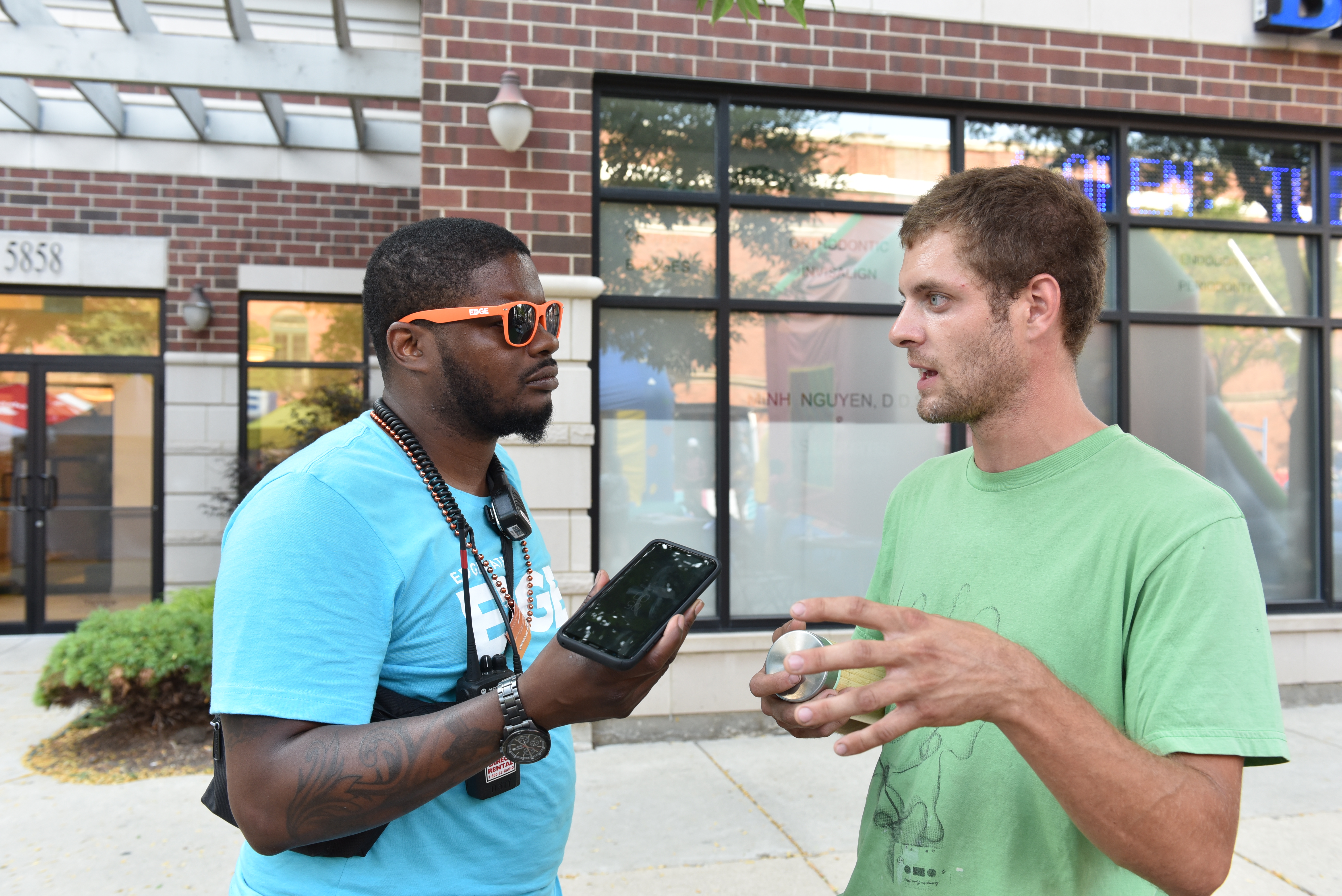Composting at EdgeFest
EdgeFest Goes Green
By Ralph Wells
2018 marks the first year that EdgeFest gave a concerted effort at reducing its carbon footprint. On the customer facing end there were recycling bins for the aluminum cans that were sold during the fest. They were all cleaned by members of Edgewater Enviornmental Sustainability Project hauled off by an aluminum scrapper. But for behind the scenes, we contracted with Healthy Soil Compost to help with vendor waste. In total EdgeFest composted 325 lbs of food scraps and reduced 234 lbs of carbon emissions over the weekend.
I caught up with the founder of Healthy Soil Compost, Johnathan Scheffel, at the festival and asked him some questions about composting, his company and its mission. Here’s what he had to say…
Wells: Hey, thanks for being here with us on this hot day. If you could start by saying who you are, the name of your company and its mission?
Scheffel: Yeah, I’m Johnathan Scheffel. I run and operate Healthy Soil Compost. Really, we’re a solution to food and waste going to a landfill. We provide multiple different solutions for either residential, offices or restaurant and food services locations. So that they can start diverting food waste from going to a landfill. The Cook County landfills have closed, and the other ones near by have a life span of less than 20 years so we’re trying to bring attention and awareness to that. About 60% of what [people are]throwing away usually is compostable. It’s a big chunk that could easily be separated if there was a solution. So, we provided the bins and the pickup service. We’re just trying to bring more awareness to it
Wells: How long has Healthy Soil Compost been around and what are some other programs you offer?
Scheffel: We’ve been around for three years. It started with me on bicycle. I did a year and a half on bicycle and hauling about 6,000 lbs. a month with these big bicycle trailers. Then realized that is wasn’t sustainable to do this with only a bicycle so we adapted into a bicycle and motor vehicle hybrid system. Now we pick up about 85,000 lbs. a month of waste. We have over 500 household members that we do house hold programs for. It works like an old milk service. People sign up for a frequency and its a personalized service where they put out the bucket and we swap it out with a fresh one.
Wells: What are some of your challenges with this business?
Scheffel: Right now the challenge for any [composting business] is creating the incentive for people to do the right thing. Its more expensive to do the right thing. Landfills and landfill services are really cheap so we can’t compete with those cost. What we are trying to communicate that it’s an investment into the future and an investment into a long term solution. Its more upfront money but its because its more valuable and more labor to do all that we’re doing.
Wells: What do you guys do with all the compost material?
Scheffel: We’re a pick-up service and we work directly with a processor that breeds earth worms and they also develop urban farms. They’re called Nature’s Little Recyclers. Their goal is to buy up vacant land in the city and use organic waste to rehabilitate the soil cause a lot of soil is contaminated in the city. So we’re recycling the compost into soil to use for land.
Wells: Why use earth worms?
Scheffel: Earth worms are amazing creatures that have been around way longer than humans and can eat half their body weight a day and anything once living. There are over 7,000 species but we work with one, the “Red Wiggler”. They also use bacteria and fungus to help break down the food waste.
Wells: What advice would you have for small businesses that are stuck in a wasteful way of doing business.
Scheffel: It’s a good question. Food services margins are really low, so to pay more for waste that’s not giving you anything back in return, even though landfills never give you anything back either, it’s hard to change your system and adopt to something new. Especially with the stigma of health code violations or that separating food would be more problematic. I say try to invest in the change because when the change happens you’re going to be more set up already rather than being forced in to it. Landfill cost will go up because they’re filling up. It’s like what happened to email: No one used it for a long time then ten years later everybody is using email. We’re at that stage where a lot of people don’t see the importance yet but its right around the corner.


